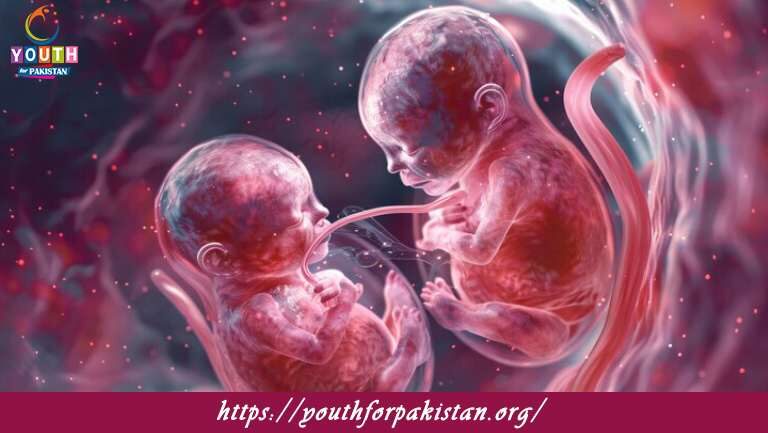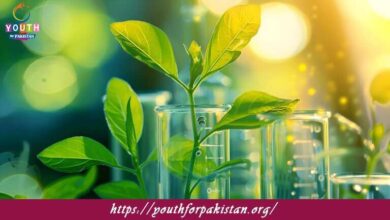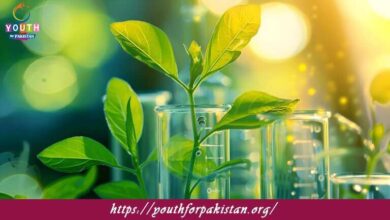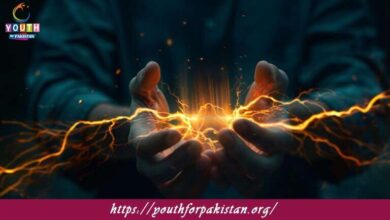10th Class Biology Chapter 14 MCQs with Answers

Dive into the fascinating world of reproduction with these focused 10th Class Biology Chapter 14 MCQs. Covering sexual and asexual reproduction, human reproductive systems, and reproductive health, these questions are perfect for 10th Class Biology exam prep. Featuring keywords like “reproduction quiz questions” and “biology MCQs for board exams.
The process by which organisms produce offspring of their own kind is called:
a) Growth
b) Reproduction
c) Metabolism
d) Evolution
The male reproductive organ in humans that produces sperm is called the:
a) Testis
b) Ovary
c) Uterus
d) Penis
The female reproductive organ in humans where the fertilized egg implants and the baby develops is called the:
a) Testis
b) Ovary
c) Uterus
d) Penis
The process of fusion of male and female gametes to form a zygote is known as:
a) Fertilization
b) Pollination
c) Budding
d) Germination
Which of the following is a reproductive method observed in unicellular organisms?
a) Pollination
b) Binary fission
c) Budding
d) Germination
The transfer of pollen grains from the anther to the stigma in flowers is called:
a) Fertilization
b) Pollination
c) Budding
d) Germination
The process of asexual reproduction in yeast cells is known as:
a) Fertilization
b) Pollination
c) Budding
d) Germination
In humans, the release of a mature egg from the ovary is called:
a) Menstruation
b) Ovulation
c) Fertilization
d) Implantation
The process in which a zygote undergoes repeated mitotic divisions to form a multicellular organism is called:
a) Pollination
b) Fertilization
c) Budding
d) Development
The fusion of the sperm and egg nuclei to form a zygote occurs in the:
a) Ovary
b) Testis
c) Fallopian tube
d) Uterus
The shedding of the uterine lining along with blood and tissues is known as:
a) Ovulation
b) Implantation
c) Menstruation
d) Fertilization
In humans, the development of a new individual takes place through:
a) Asexual reproduction
b) Sexual reproduction
c) Both asexual and sexual reproduction
d) None of the above
The primary reproductive organs in the female are the:
a) Ovaries
b) Fallopian tubes
c) Uterus
d) Vagina
The union of male and female gametes during sexual reproduction results in the formation of:
a) A zygote
b) A seed
c) A spore
d) A flower
The process of the growth and development of a zygote into a new individual is called:
a) Fertilization
b) Germination
c) Embryogenesis
d) Pollination
In humans, the fusion of the egg and sperm takes place in the:
a) Ovary
b) Uterus
c) Fallopian tube
d) Vagina
The transfer of pollen from the anther to the stigma of the same flower or a different flower of the same plant is called:
a) Cross-pollination
b) Self-pollination
c) Fertilization
d) Germination
The male gametes in plants are produced in the:
a) Anther
b) Stigma
c) Ovary
d) Petal
The female gametes in plants are produced in the:
a) Anther
b) Stigma
c) Ovary
d) Petal
The process of the emergence of the radicle from the seed during seed germination is called:
a) Fertilization
b) Implantation
c) Budding
d) Radicalization
The male reproductive cell in plants is called the:
a) Zygote
b) Pollen grain
c) Embryo
d) Ovule
The female reproductive cell in plants is called the:
a) Zygote
b) Pollen grain
c) Embryo
d) Ovule
The transfer of pollen grains from the anther to the stigma of a different flower on another plant is called:
a) Self-pollination
b) Cross-pollination
c) Fertilization
d) Germination
The process by which a seed develops into a new plant under favorable conditions is known as:
a) Germination
b) Pollination
c) Fertilization
d) Implantation
The fusion of a male gamete with a female gamete to form a zygote occurs in:
a) The ovary
b) The anther
c) The fallopian tube
d) The uterus
In flowering plants, fertilization occurs inside the:
a) Anther
b) Ovary
c) Stigma
d) Petal
The primary reproductive organs in the male are the:
a) Ovaries
b) Fallopian tubes
c) Testes
d) Vagina
The process of the development of an embryo from a zygote is called:
a) Germination
b) Fertilization
c) Embryogenesis
d) Pollination
The release of a mature egg from the ovary is known as:
a) Ovulation
b) Implantation
c) Fertilization
d) Menstruation
The development of a multicellular organism from a zygote involves the process of:
a) Fertilization
b) Pollination
c) Budding
d) Embryogenesis
The process of formation of the seedling from the embryo is called:
a) Germination
b) Fertilization
c) Pollination
d) Implantation
In humans, the zygote is implanted in the:
a) Ovary
b) Uterus
c) Fallopian tube
d) Vagina
The process of the development of the embryo in the uterus is known as:
a) Menstruation
b) Ovulation
c) Pregnancy
d) Implantation
The period of pregnancy in humans lasts for approximately:
a) 3 months
b) 6 months
c) 9 months
d) 12 months
The process of the release of an egg from the ovary in females is called:
a) Ovulation
b) Implantation
c) Fertilization
d) Menstruation
The structure that connects the placenta to the developing embryo in the uterus is called the:
a) Ovary
b) Uterus
c) Fallopian tube
d) Umbilical cord
The process of shedding the uterine lining and blood during the menstrual cycle is known as:
a) Ovulation
b) Menstruation
c) Fertilization
d) Implantation
The transfer of pollen from the anther to the stigma of the same flower is called:
a) Cross-pollination
b) Self-pollination
c) Fertilization
d) Germination
The period of menstrual flow in females lasts for approximately:
a) 1 day
b) 3 days
c) 5 days
d) 7 days
In humans, the development of a new individual takes place through:
a) Asexual reproduction
b) Sexual reproduction
c) Both asexual and sexual reproduction
d) None of the above
The primary reproductive organs in the female are the:
a) Ovaries
b) Fallopian tubes
c) Uterus
d) Vagina
The primary reproductive organs in the male are the:
a) Ovaries
b) Fallopian tubes
c) Testes
d) Vagina
The process of the growth and development of a zygote into a new individual is called:
a) Fertilization
b) Germination
c) Embryogenesis
d) Pollination
The fusion of a male gamete with a female gamete to form a zygote occurs in:
a) The ovary
b) The anther
c) The fallopian tube
d) The uterus
In flowering plants, fertilization occurs inside the:
a) Anther
b) Ovary
c) Stigma
d) Petal
The process of formation of the seedling from the embryo is called:
a) Germination
b) Fertilization
c) Pollination
d) Implantation
In humans, the zygote is implanted in the:
a) Ovary
b) Uterus
c) Fallopian tube
d) Vagina
The process of the development of the embryo in the uterus is known as:
a) Menstruation
b) Ovulation
c) Pregnancy
d) Implantation
The period of pregnancy in humans lasts for approximately:
a) 3 months
b) 6 months
c) 9 months
d) 12 months
The process of the release of an egg from the ovary in females is called:
a) Ovulation
b) Implantation
c) Fertilization
d) Menstruation
The structure that connects the placenta to the developing embryo in the uterus is called the:
a) Ovary
b) Uterus
c) Fallopian tube
d) Umbilical cord
The process of shedding the uterine lining and blood during the menstrual cycle is known as:
a) Ovulation
b) Menstruation
c) Fertilization
d) Implantation
The transfer of pollen from the anther to the stigma of the same flower is called:
a) Cross-pollination
b) Self-pollination
c) Fertilization
d) Germination
The period of menstrual flow in females lasts for approximately:
a) 1 day
b) 3 days
c) 5 days
d) 7 days
In humans, the development of a new individual takes place through:
a) Asexual reproduction
b) Sexual reproduction
c) Both asexual and sexual reproduction
d) None of the above
The primary reproductive organs in the female are the:
a) Ovaries
b) Fallopian tubes
c) Uterus
d) Vagina
The primary reproductive organs in the male are the:
a) Ovaries
b) Fallopian tubes
c) Testes
d) Vagina
The process of the growth and development of a zygote into a new individual is called:
a) Fertilization
b) Germination
c) Embryogenesis
d) Pollination
The fusion of a male gamete with a female gamete to form a zygote occurs in:
a) The ovary
b) The anther
c) The fallopian tube
d) The uterus
In flowering plants, fertilization occurs inside the:
a) Anther
b) Ovary
c) Stigma
d) Petal
If you are interested to enhance your knowledge regarding Physics, Chemistry, Biology, and Computer please click on the link of each category, you will be redirected to dedicated website for each category.





